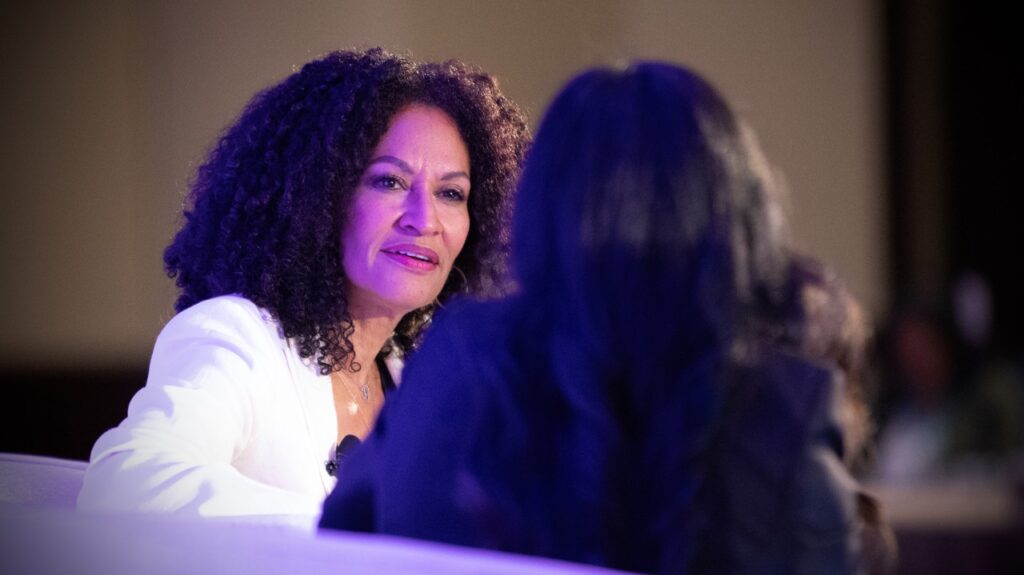A couple weeks ago, I flew to California to deliver a keynote for a global technology company. During the fireside chat portion, I was asked what leaders often get wrong about equity and inclusion work.
I answered as I traditionally do, saying that when leaders obsess over best practices, they often undervalue the first and most important step, which is to clearly define the problem they’re trying to solve. They remain unaware of the specific experiences and behaviors that challenge their inclusion efforts, or how those issues connect to business outcomes. Therefore, they can’t accurately prioritize what to do first and next, where to do it, how to do it, or whom to involve.
The interviewer then asked whether and how the last several months of anti-DEI chaos have changed my usual answer to this question. “What’s the biggest mistake they’re making NOW?”
I paused and took a breath, considering how best to articulate my gut response.
“Right now, we’re sinking to the lowest common denominator. Exhausted by never-ending conflict, we emphasize the ideas on which most people agree. Of course, this list gets shorter with each stroke of division.”
As I spoke, I simultaneously spun through the many ideas that were broadly accepted five years ago but were now up for debate: children should be fed, women should receive reproductive care, human beings should be treated humanely, citizenship aside. I firmly believe that in clinging to what carries the least risk, costs us the least, brings the least attention, and requires the least courage, we strip the work of its meaning.
I continued, “We’re so focused on not doing the wrong things in this polarized environment that we’re failing to do the right things, and this will undoubtedly harm all of us in the long run.”
I went on to explain that in this race to the bottom, we’re leaving people unprotected and rendering them invisible. By not declaring our values more boldly and holding people accountable for living them, we’re stoking the assumption that they no longer matter. And once this happens, all bets are off. Employees will trade our company beliefs for their personal beliefs and then behave accordingly, leading to cultural abandonment. This is how we unwittingly reset the baseline. This is how we begin to unravel our mutual foundation.
Especially disturbing is that, in many instances, risk is currently contextualized by entities whose values don’t coincide with stated company values. Prioritizing the avoidance of near and present risk often puts long-term workplace wellness in danger, because a company’s long-term health relies heavily on integrity and reliability.
Your employees and prospective employees want to know: Can I trust you to be who you say you are? All the time? And for how long?
Ultimately, there are people and entities who seek to build up, and those who aim to tear down. At any moment, both are loitering—looking for ideas and people and companies to point their energy toward. What this means for all of us practically is there is no guaranteed way to benefit from the former and avoid the latter, because these views are often diametrically opposed. This is why it’s more important than ever to stand on your values and move with your beliefs. Your values anchor you. Your beliefs guide your choices and investments.
Of course, the need to be anchored and guided through change is not reserved for issues of workplace equity and inclusion. Human beings resist change in general, and behind each act of resistance is a messy concoction of fear, entitlement, misguided or misaligned purposes, and a dose of self-righteousness. We can’t get in everyone’s head, and even if we could, the noise would be deafening.
Sometimes the best way forward is to reassess what has always been and will always be true—the parts of your life, your company, and your family that are sources and not symptoms. Going back to your values and recommitting to your beliefs gives the people around you something to connect to when uncertainty reigns. It provides a common cause. It makes you more trustworthy, even if it means you will disappoint some people.
If you’re compromising your values—business or personal—to avoid doing the right thing, the most important question of all, I think, is this:
Who are you most willing to disappoint? And why is it you?
Tara Jaye Frank
Image courtesy of Vibrant Pittsburgh
